|
ID |
Nickname |
Country / City |
Languages |
Taxonomies |
Comment |
Project / Group |
Map |
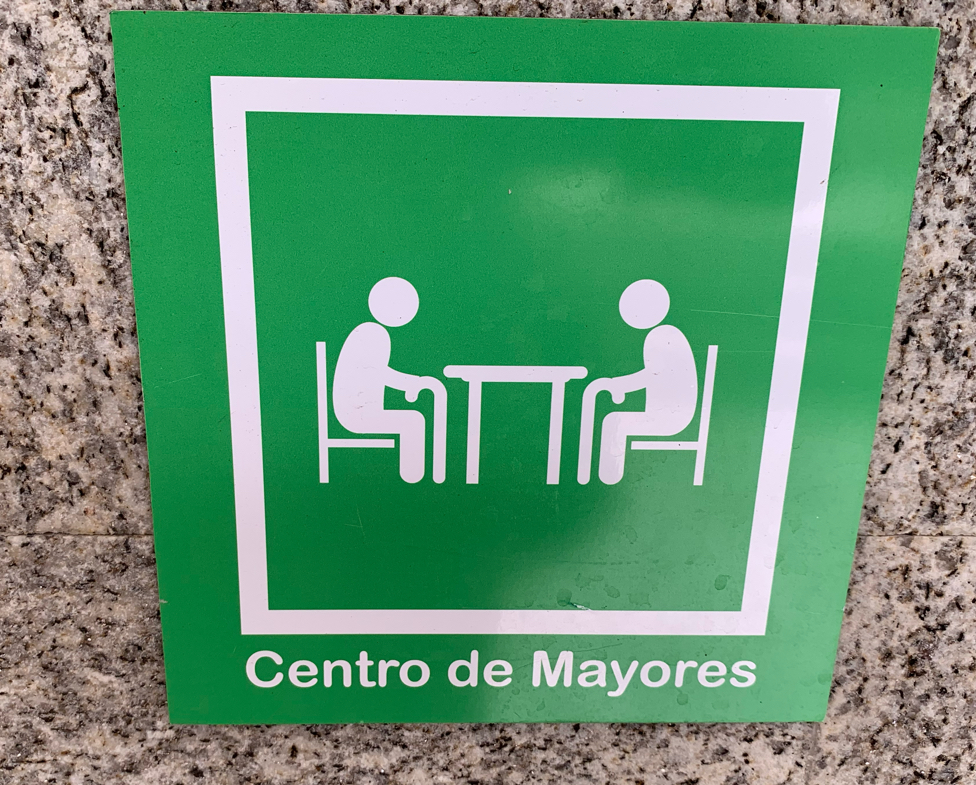
|
135914
|
Laura_Pizarro_Jacinto
|
Spain
Cáceres
|
|
|
—
|
PALRA
|
|
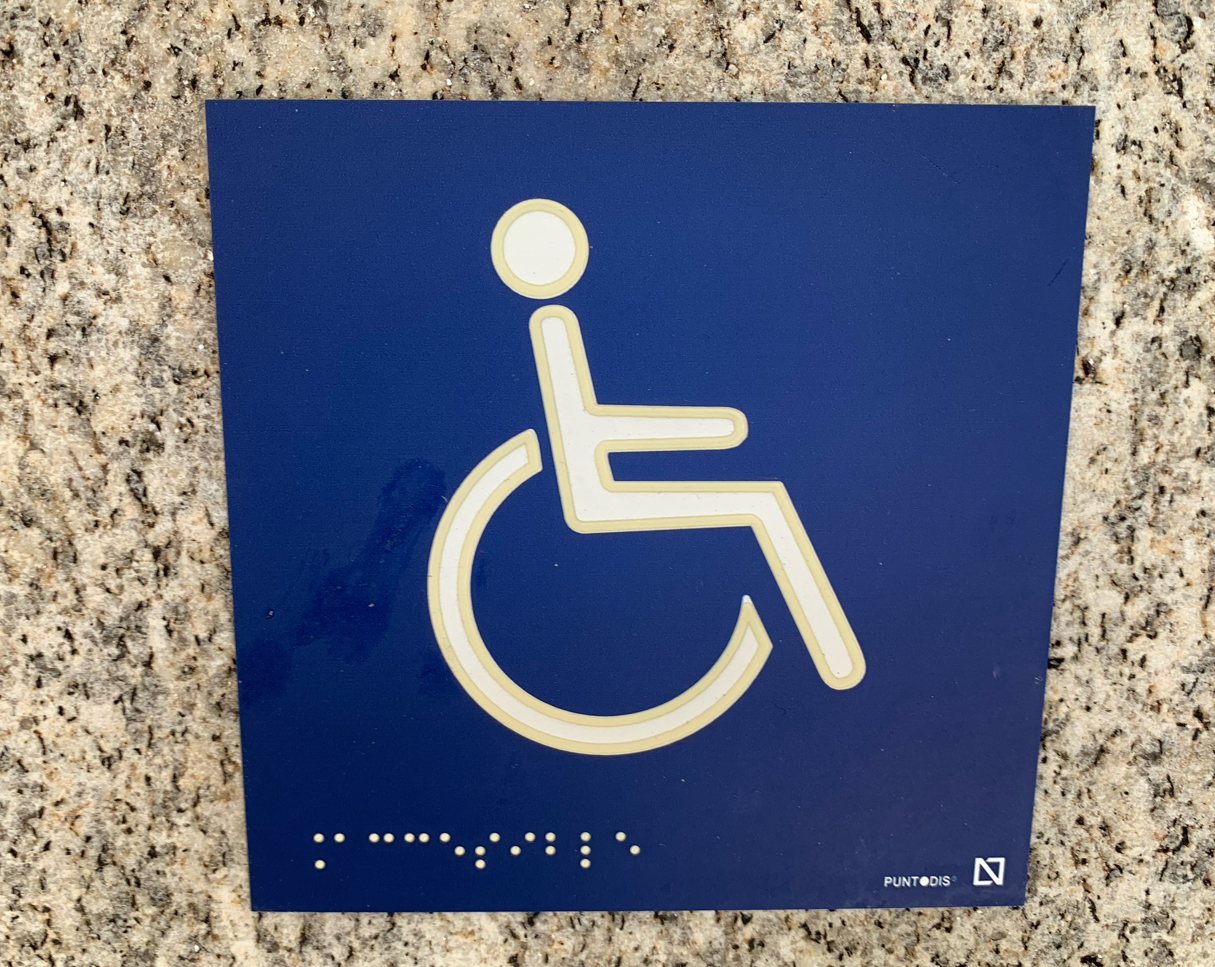
|
135915
|
Laura_Pizarro_Jacinto
|
Spain
Cáceres
|
|
|
Pictorial language (universal symbol): White wheelchair icon on blue background = globally recognized symbol for accessibility. Used in transport, public buildings, toilets, tourist areas.
Braille (tactile writing system): Below the pictogram, there is a line of Braille dots (Spanish Braille alphabet). This inclusion is crucial for visually impaired users.
Typography / Branding: Bottom right: PUNTODIS (Spanish company specializing in accessibility signage). A small square logo further emphasizes its institutional nature.
Multimodality for accessibility
Combines visual language (icon) and tactile language (Braille).
Makes the sign accessible to both sighted and visually impaired users.
Universal vs. local layers
The wheelchair icon is globally understood, part of an international semiotic system.
The Braille, however, is localized in Spanish Braille, adapting accessibility to the local language context.
Top-down institutional signage: Installed by municipal or regional authorities, reflecting legal frameworks on accessibility and inclusion in Spain.
Materiality and placement: The sign is printed on durable plastic/metal, fixed to stone — integrating modern accessibility requirements into a heritage urban landscape like Cáceres.
|
PALRA
|
|
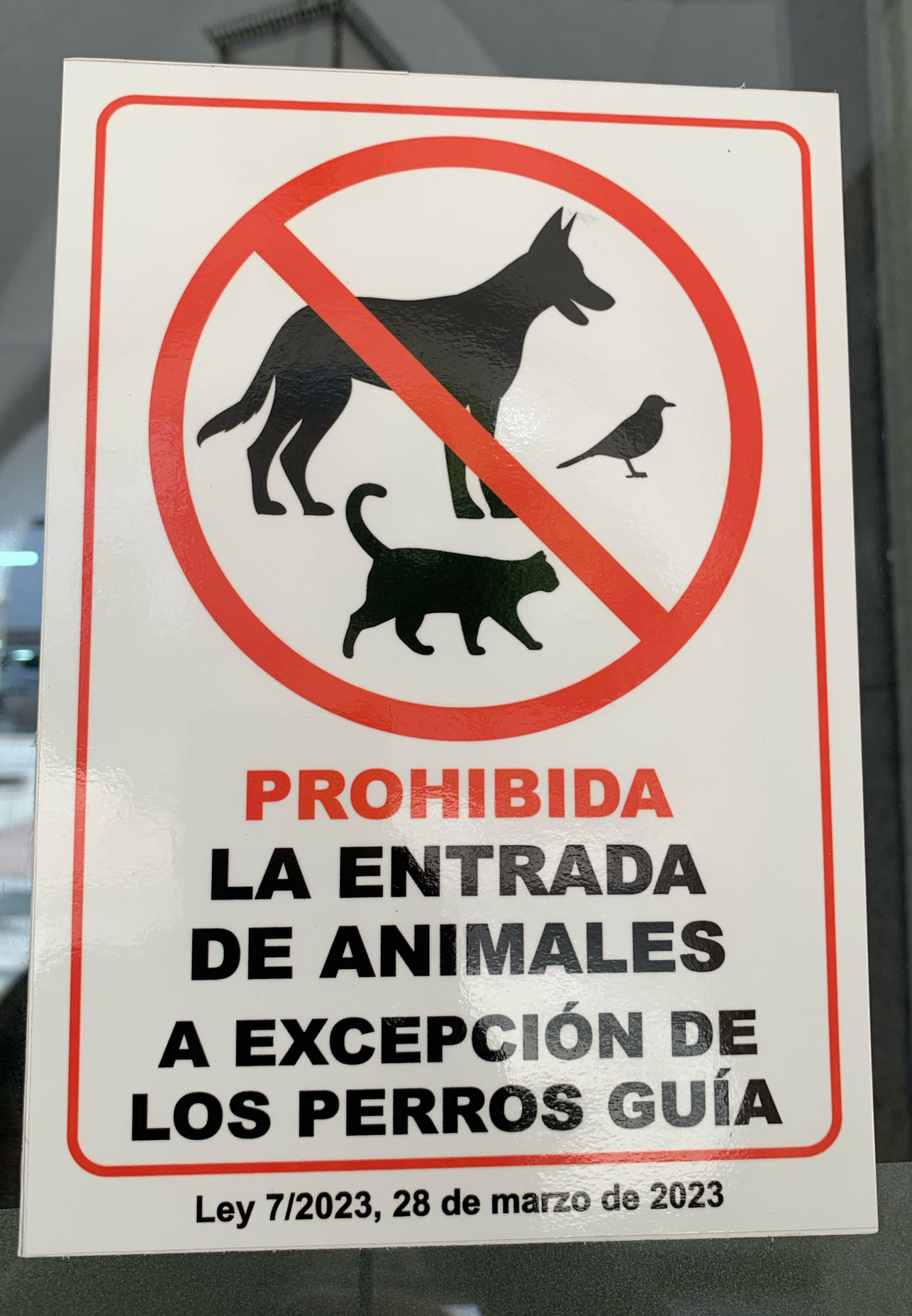
|
135916
|
Laura_Pizarro_Jacinto
|
Spain
Cáceres
|
|
|
—
|
PALRA
|
|
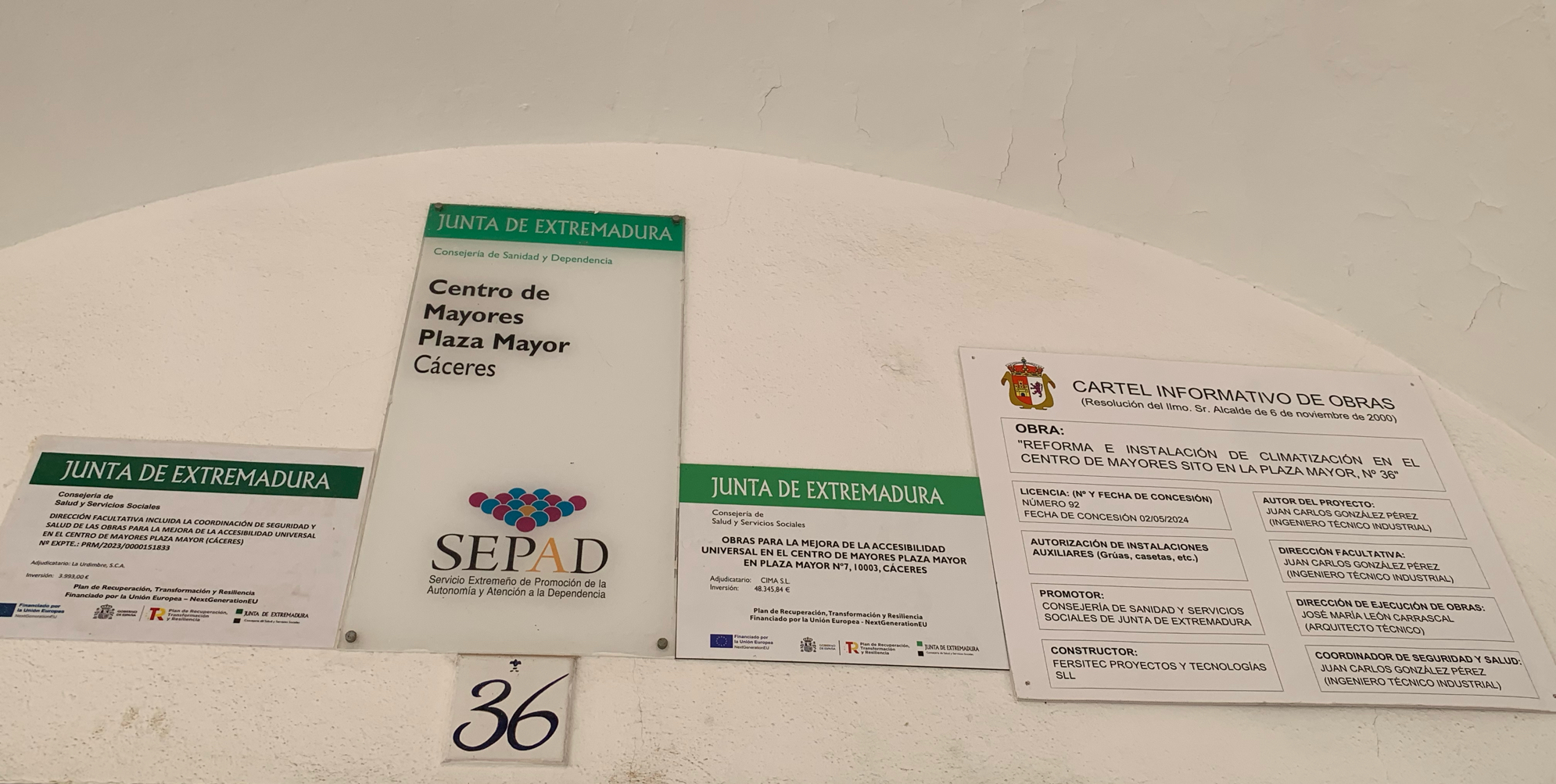
|
135917
|
Laura_Pizarro_Jacinto
|
Spain
Cáceres
|
|
|
—
|
PALRA
|
|
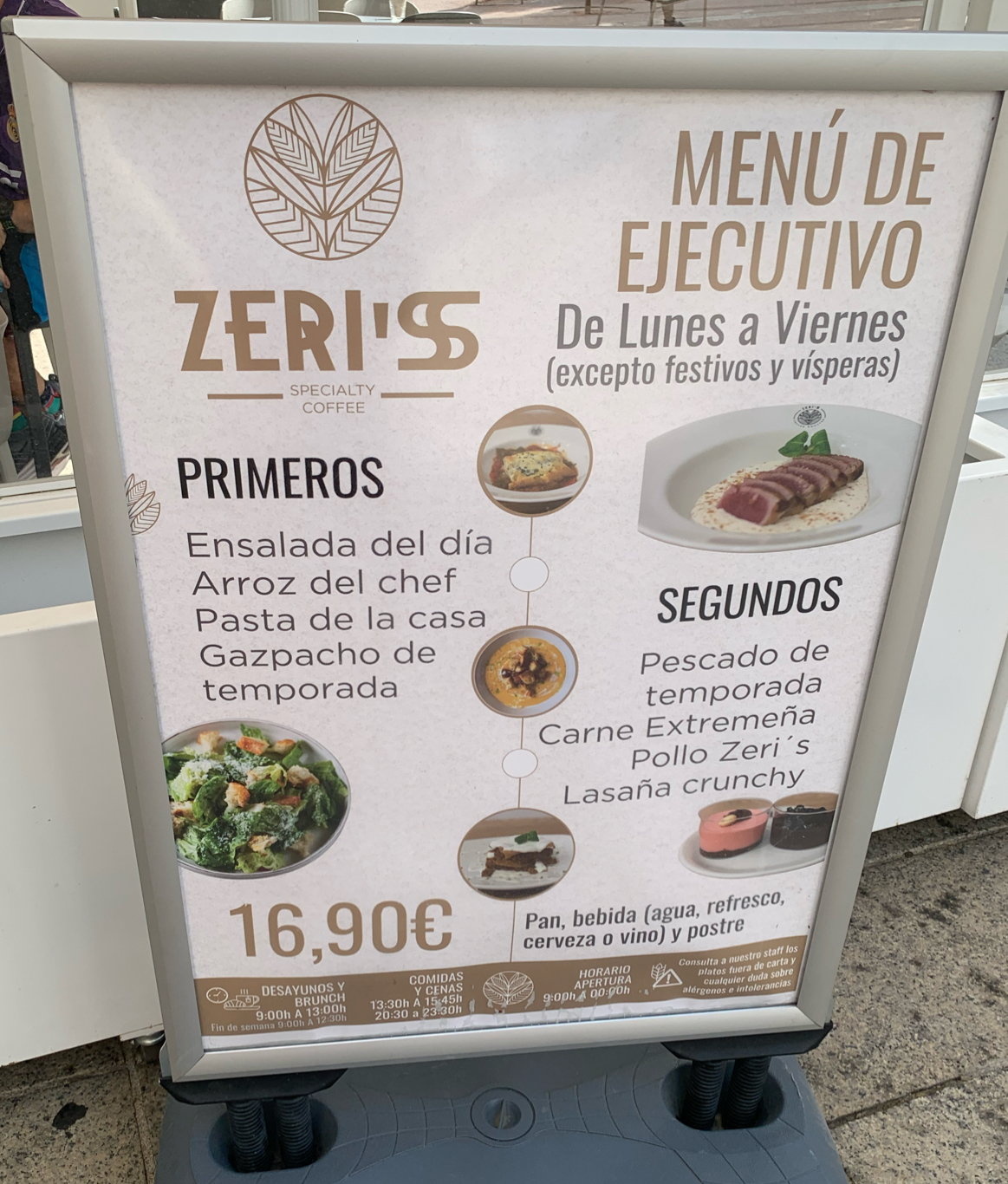
|
135918
|
Laura_Pizarro_Jacinto
|
Spain
Cáceres
|
|
|
—
|
PALRA
|
|
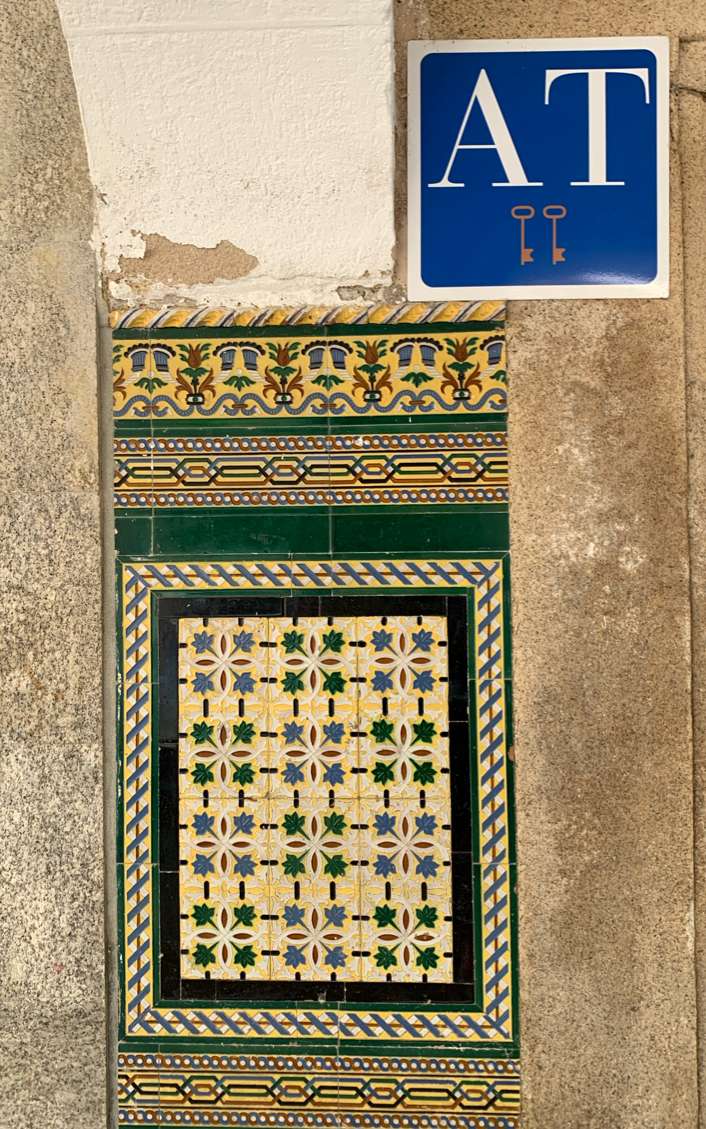
|
135919
|
Laura_Pizarro_Jacinto
|
Spain
Cáceres
|
|
|
Alphabetic language
AT : Spanish institutional code, short for Apartamentos Turísticos (Tourist Apartments). This is a regulated accommodation category in Spain, marked with the official blue sign and key symbols.
Pictorial / symbolic language
Two key icons below the “AT” : non-verbal semiotic code. Keys = hospitality, lodging, tourism. The number of keys sometimes represents quality classification (similar to hotel stars).
Non-linguistic cultural signage
Traditional ceramic tiles with geometric and floral patterns : heritage aesthetics. These tiles are not “words,” but they communicate cultural identity. They anchor the modern tourism signage in the historic urban environment.
|
PALRA
|
|
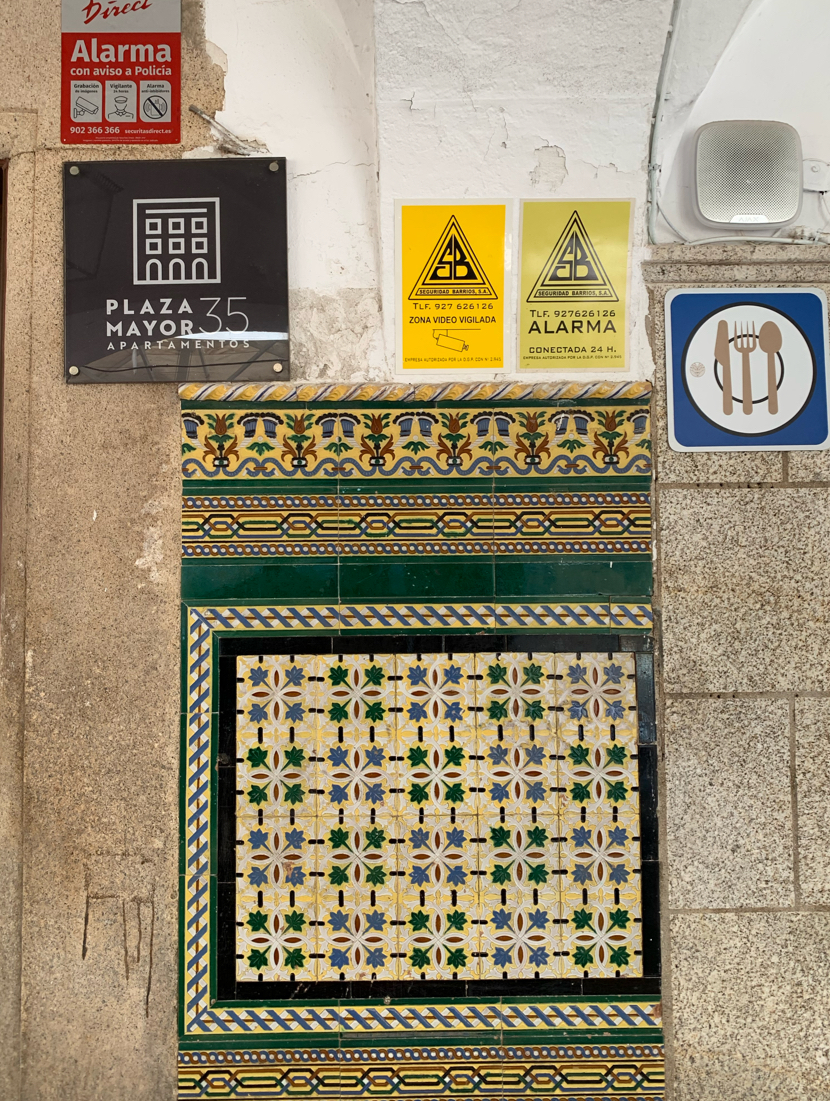
|
135920
|
Laura_Pizarro_Jacinto
|
Spain
Cáceres
|
|
|
Spanish (dominant, functional & regulatory)
Alarma con aviso a Policía : “Alarm with police notice.”
Zona video vigilada : “Video surveillance area.”
Alarma conectada 24 h : “Alarm connected 24h.”
Plaza Mayor 35 Apartamentos : “Plaza Mayor 35 Apartments.”
Global design influence, the apartment logo (Plaza Mayor 35) adopts international branding aesthetics, even though the language is Spanish.
Non-linguistic signage: Blue plate symbol of knife and fork : universal icon for food services (transcends language).
Spanish dominance (functional and regulatory):
Most signs are in Spanish, reflecting the local community and legal requirements (alarms, surveillance, police-linked systems).
These are top-down institutional signs, ensuring safety and compliance.
Commercial branding:
Plaza Mayor 35 Apartamentos uses modern typography and minimalist design, signaling a shift to tourist-oriented accommodation. Even though the text is in Spanish, the design targets an international audience, mirroring global boutique apartment branding.
Tourist semiotics:
The knife and fork pictogram is a non-verbal universal code pointing to food services. This allows communication without language, accommodating international visitors in a heritage-rich plaza.
Cultural layer:
The colorful ceramic tiles below are non-verbal but play an important role in the semiotic landscape. They reinforce Spanish identity and local heritage aesthetics, contrasting with the modern, minimalist signs above.
|
PALRA
|
|
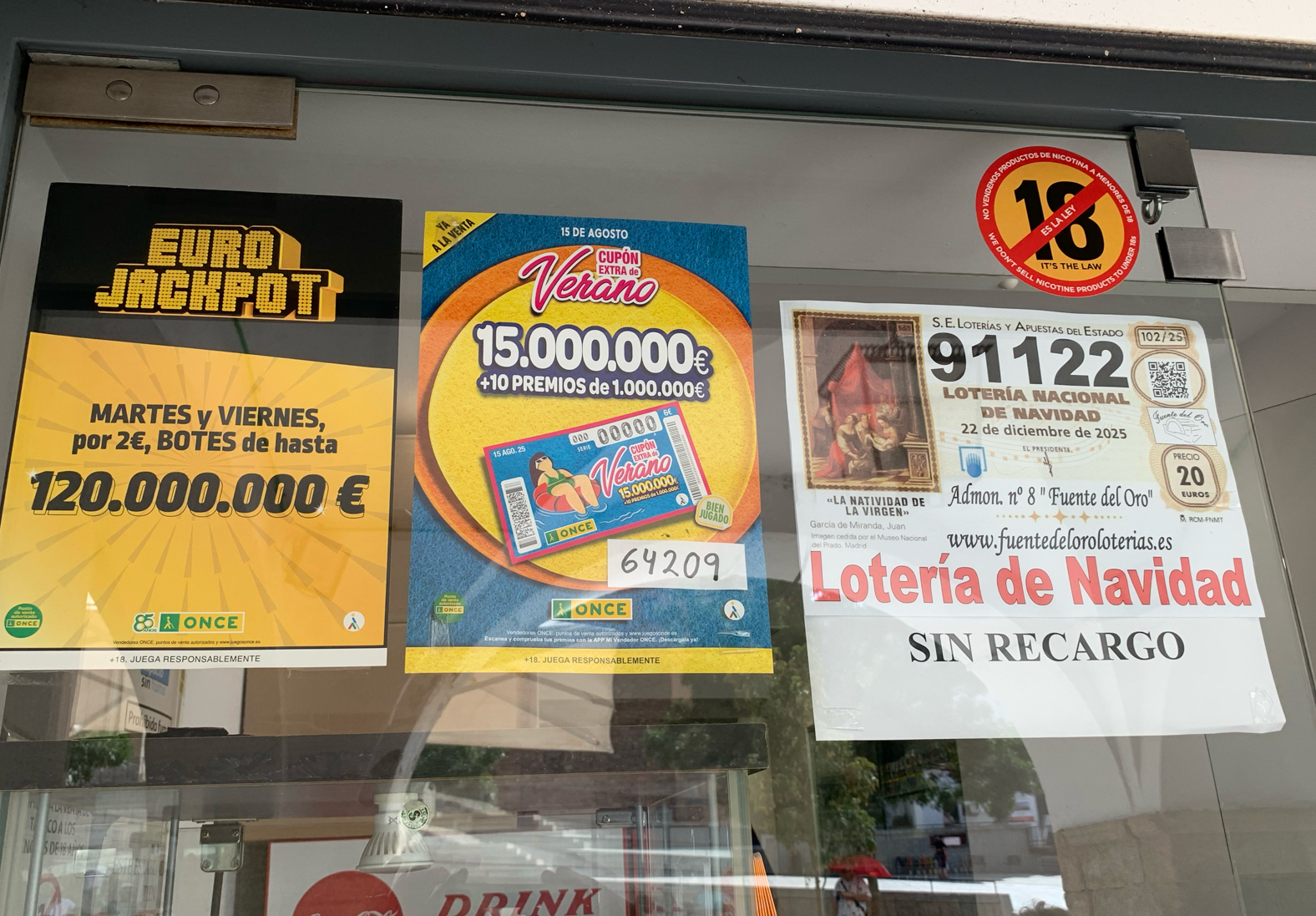
|
135921
|
Laura_Pizarro_Jacinto
|
Spain
Cáceres
|
|
|
Spanish (dominant, institutional + commercial):
Martes y viernes, por 2€, botes de hasta 120.000.000 € : “Tuesdays and Fridays, for €2, jackpots up to €120,000,000.”
Cupón Extra de Verano : “Summer Extra Coupon.”
Lotería Nacional de Navidad : “National Christmas Lottery.”
Sin recargo : “No surcharge.”
Fine print: responsible gambling warnings (+18, Juega responsablemente).
English (secondary, global slogan):
EuroJackpot : brand name in English
|
PALRA
|
|
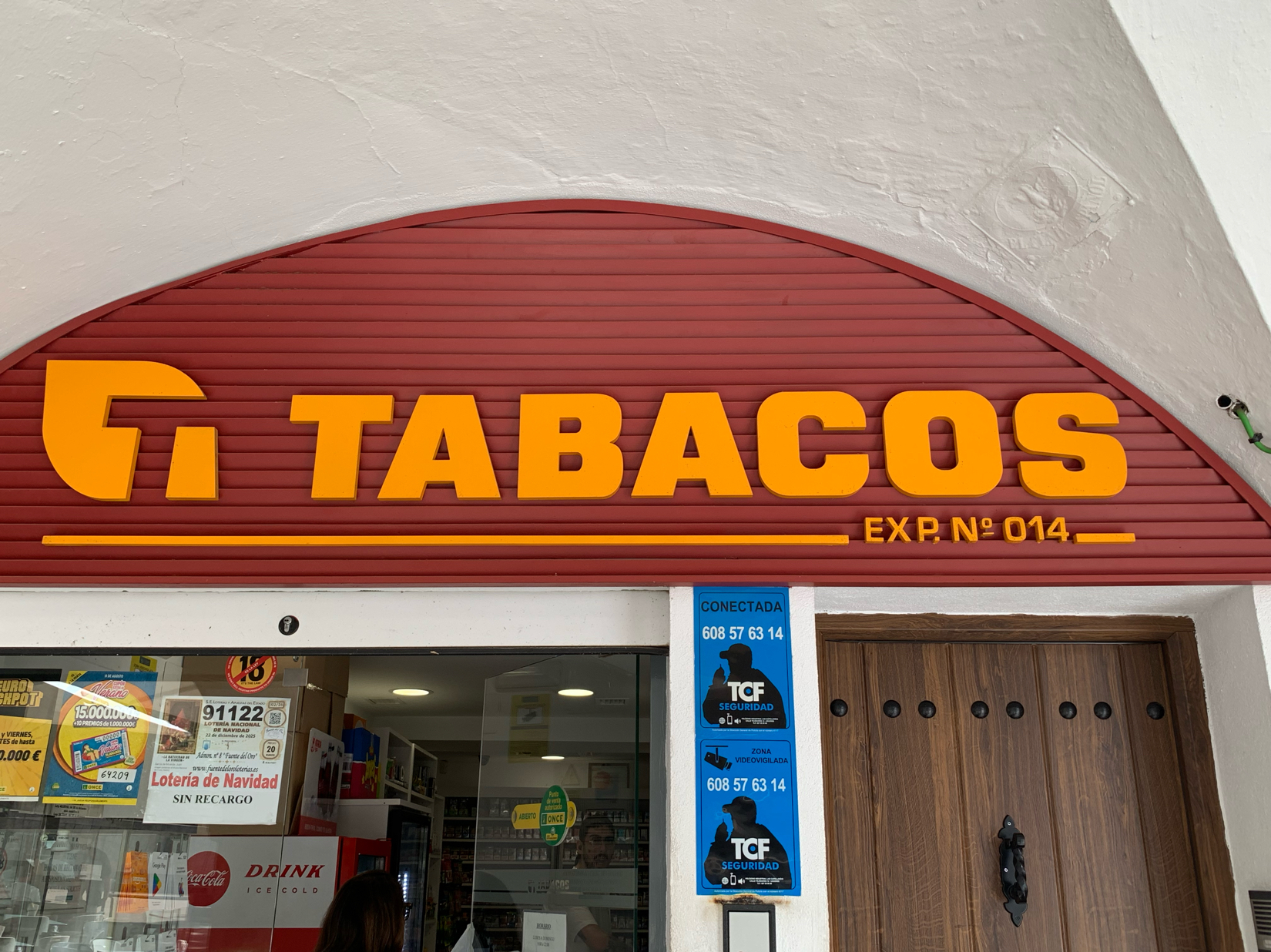
|
135922
|
Laura_Pizarro_Jacinto
|
Spain
Cáceres
|
|
|
Spanish
TABACOS : Tobacco shop.
EXP. Nº 014 : Concession or license number.
Lotería de Navidad sin recargo (inside poster) : “Christmas lottery without surcharge.”
English (secondary, global branding)
Drink Ice Cold (Coca-Cola sign inside).
Top-down regulation: The Tabacos sign is a state-controlled franchise. In Spain, tobacco shops (estancos) are regulated by the government, and every one has a license number (Exp. Nº ...). The standardized design (yellow text on red background with the tobacco symbol “T”) shows uniformity across the country. This is not just commerce but part of the institutional landscape of the state.
Spanish as the dominant code: Clear, functional, and necessary for locals. Reinforces the national monopoly status of tobacco distribution.
English as a global commercial layer: Coca-Cola’s Drink Ice Cold adds a touch of global advertising discourse inside the shop. While the store’s main identity is highly regulated and national (Spanish state monopoly), interior advertising allows space for global consumer culture.
Visual semiotics: The bold yellow/red color scheme is part of the Spanish state’s brand identity for tobacco shops. It contrasts with the more colorful and playful commercial logos inside (lottery, Coca-Cola, etc.).
|
PALRA
|
|
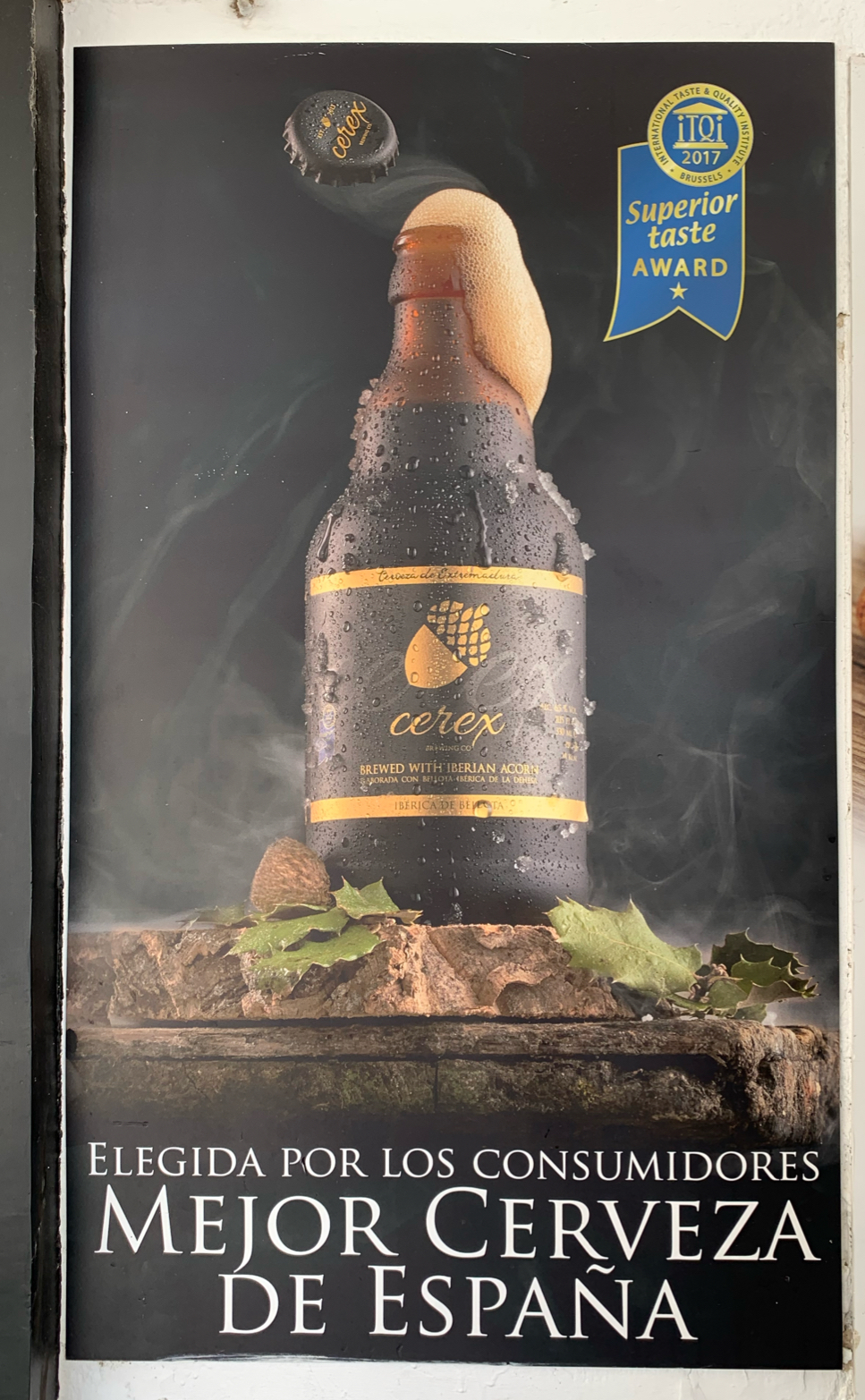
|
135923
|
Laura_Pizarro_Jacinto
|
Spain
Cáceres
|
|
|
—
|
PALRA
|
|
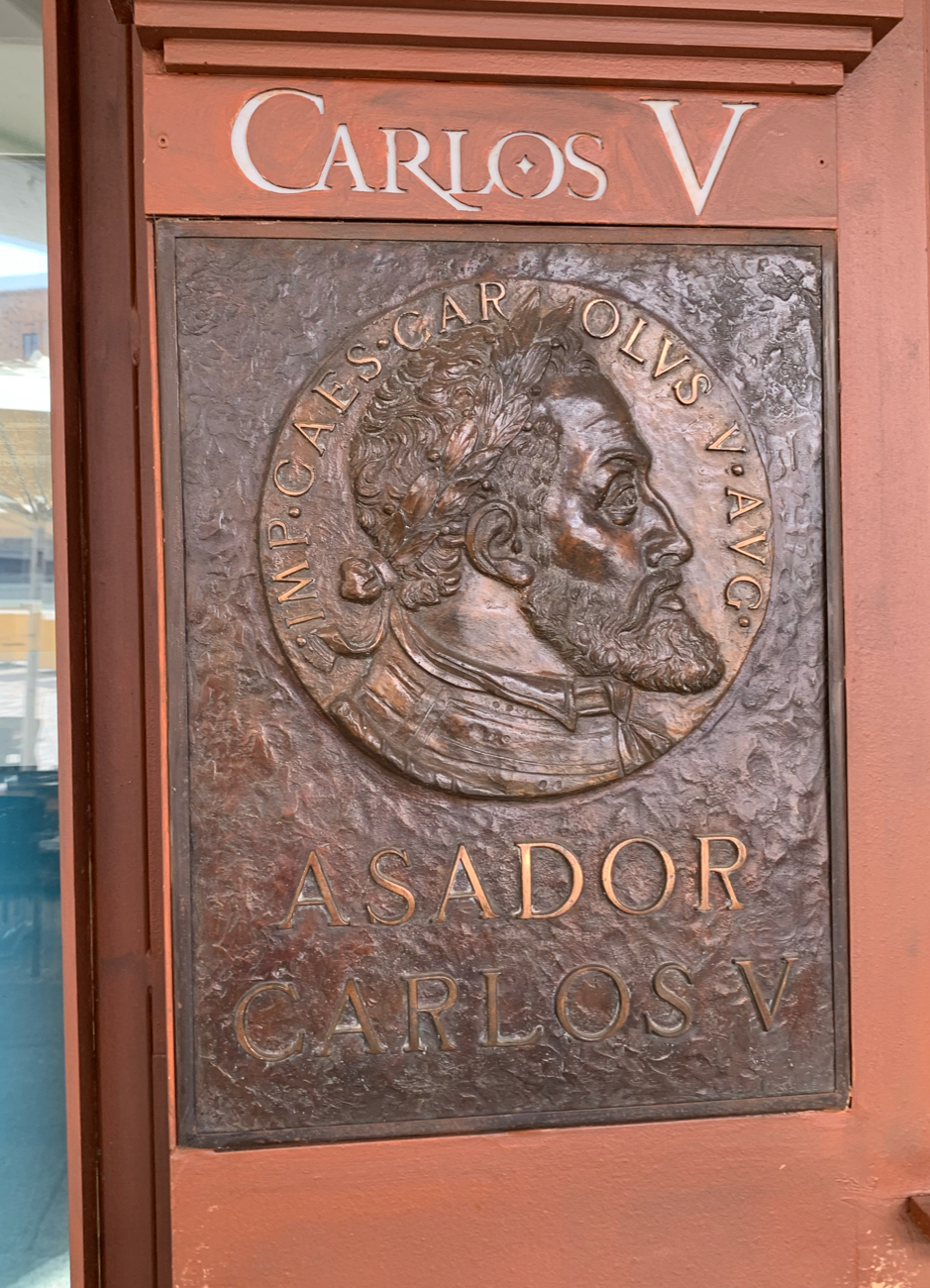
|
135924
|
Laura_Pizarro_Jacinto
|
Spain
Cáceres
|
|
|
Spanish
Carlos V : “Charles V” (Holy Roman Emperor, 16th c.).
Asador Carlos V : “Grillhouse Carlos V” → a restaurant name invoking history.
Latin (symbolic/historical)
Around the medallion: IMP·CAES·CAROLVS V·AVG
Short for Imperator Caesar Carolus Quintus Augustus (Emperor Caesar Charles V Augustus).
Classical Latin used for prestige, evoking imperial power and tradition. The bronze relief portrait of Charles V reinforces the link between heritage and commercial branding. The mix of materials (bronze, stone-like textures) communicates permanence and prestige.
Hybrid function: This sign blends heritage (Latin, historical figure) with commerce (Spanish restaurant name), making history consumable for visitors. It illustrates how the linguistic landscape can commodify history, transforming cultural memory into a marketing tool.
|
PALRA
|
|
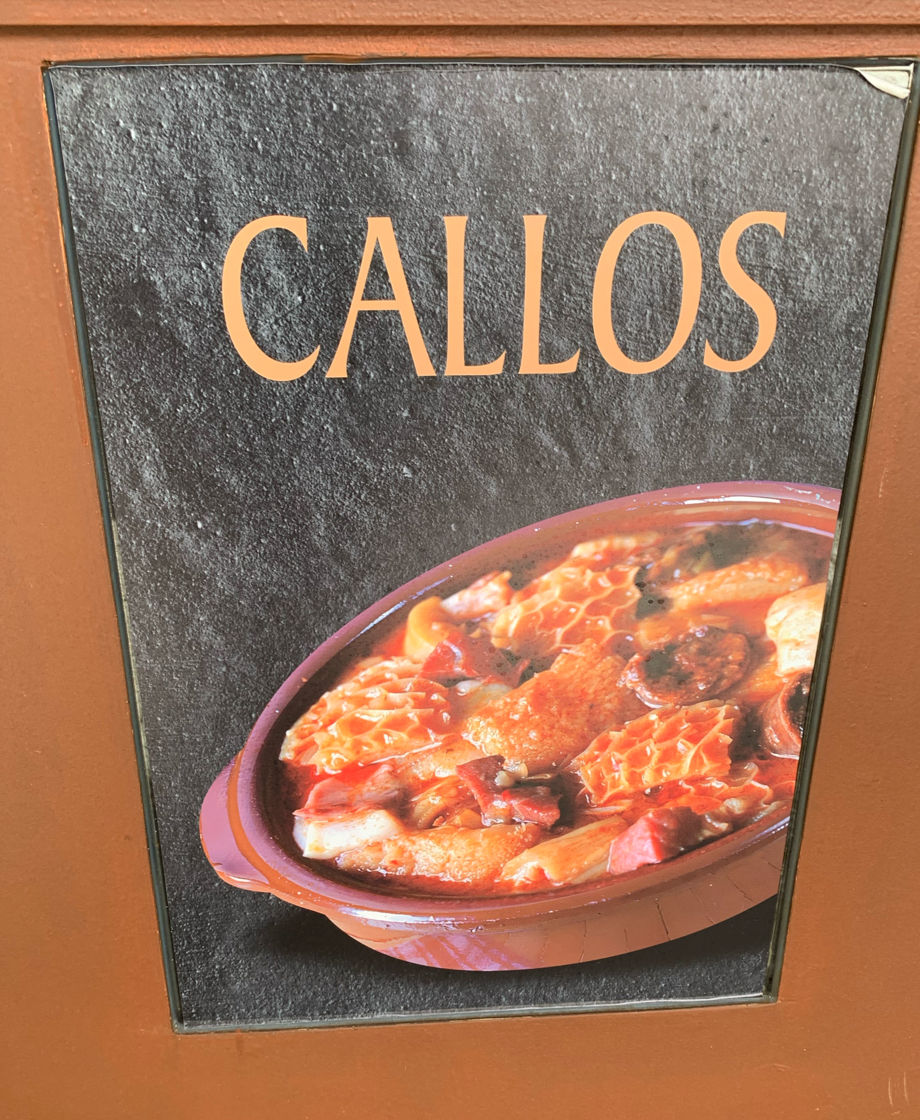
|
135925
|
Laura_Pizarro_Jacinto
|
Spain
Cáceres
|
|
|
—
|
PALRA
|
|
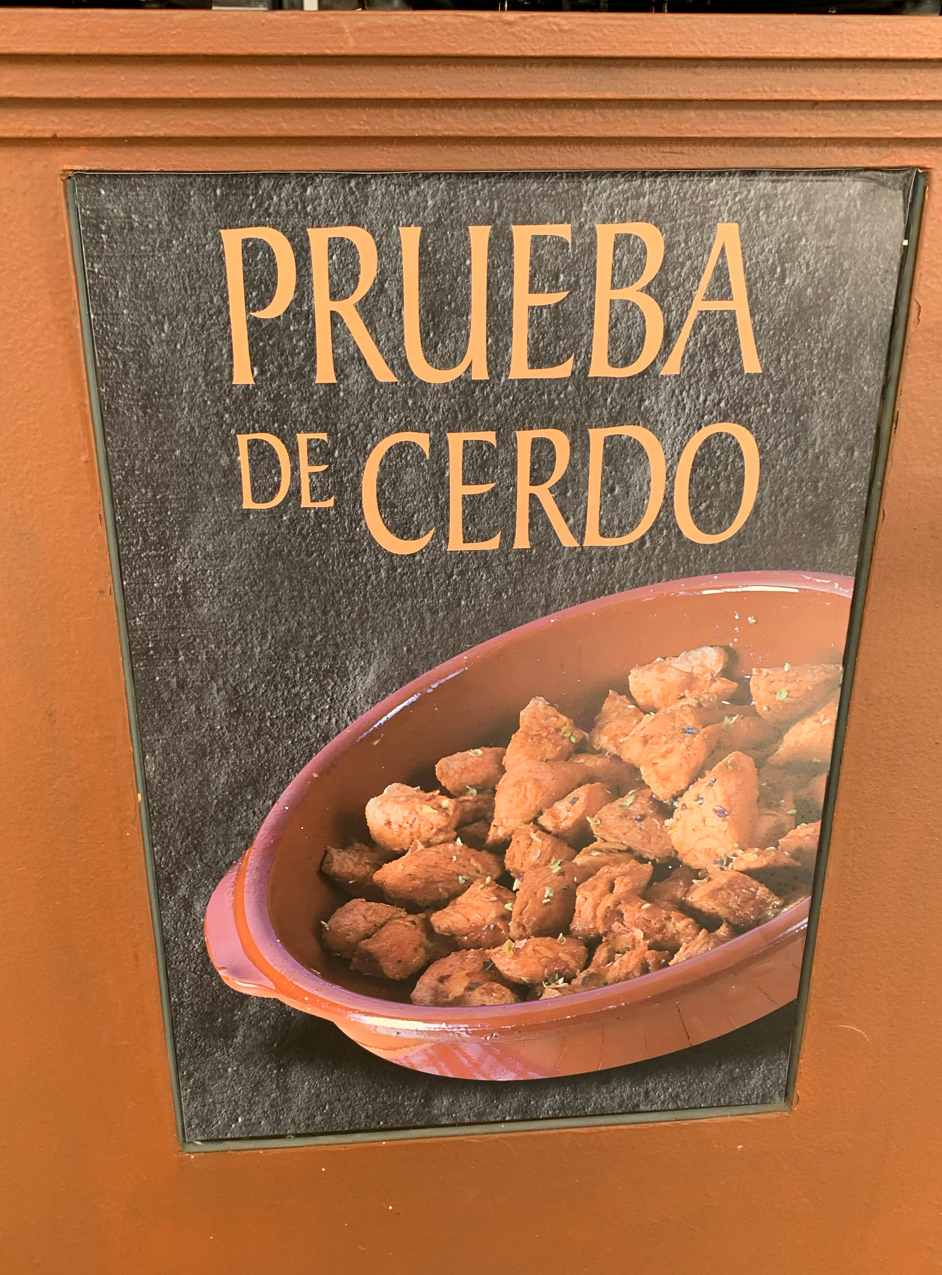
|
135926
|
Laura_Pizarro_Jacinto
|
Spain
Cáceres
|
|
|
—
|
PALRA
|
|
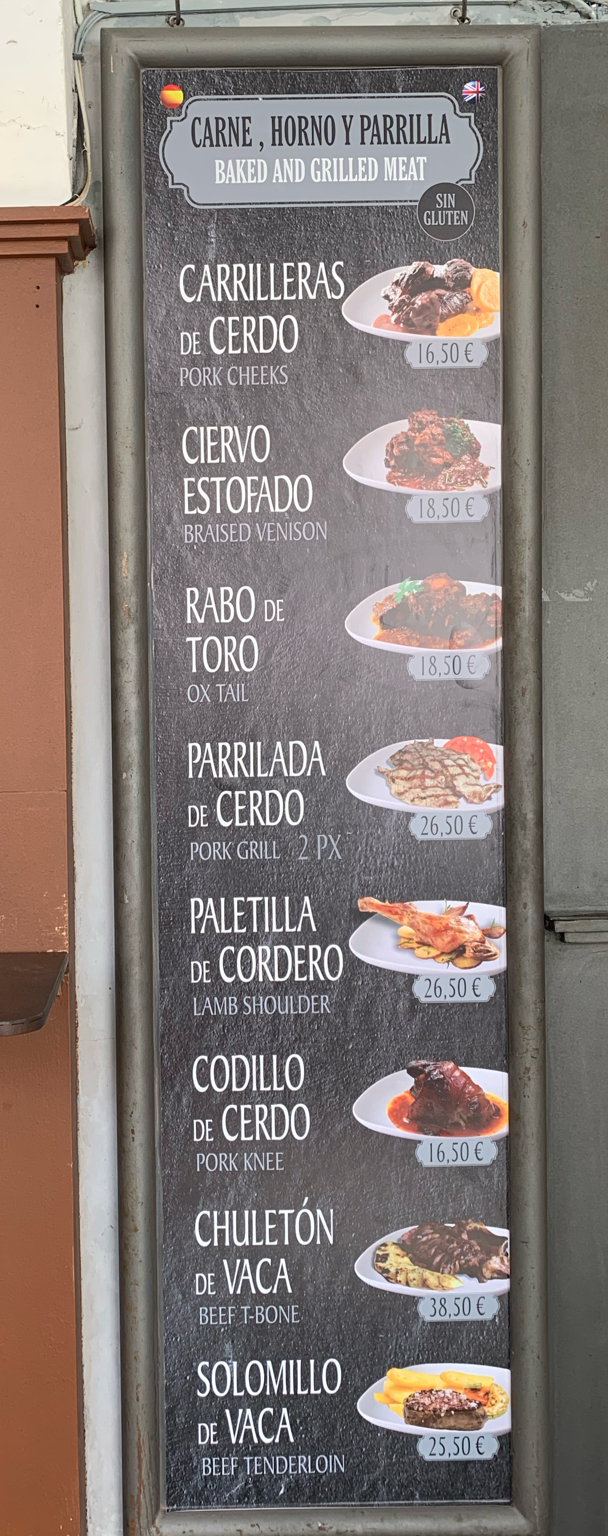
|
135927
|
Laura_Pizarro_Jacinto
|
Spain
Cáceres
|
|
|
—
|
PALRA
|
|
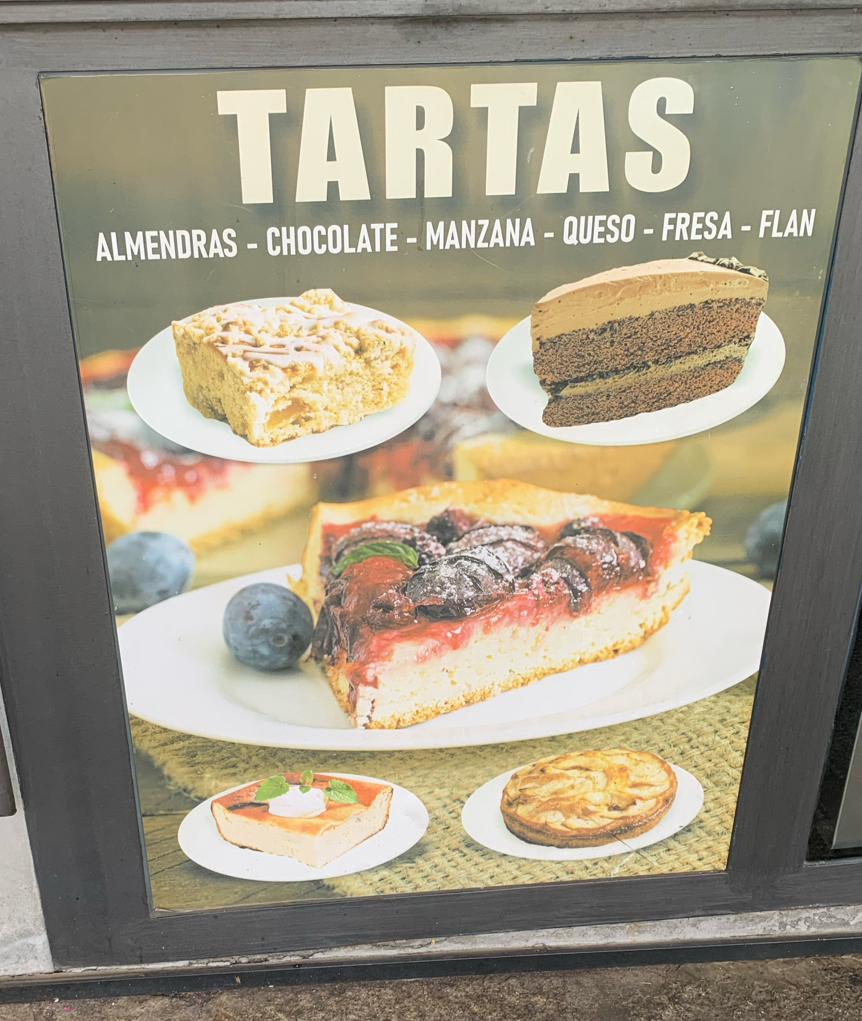
|
135928
|
Laura_Pizarro_Jacinto
|
Spain
Cáceres
|
|
|
—
|
PALRA
|
|
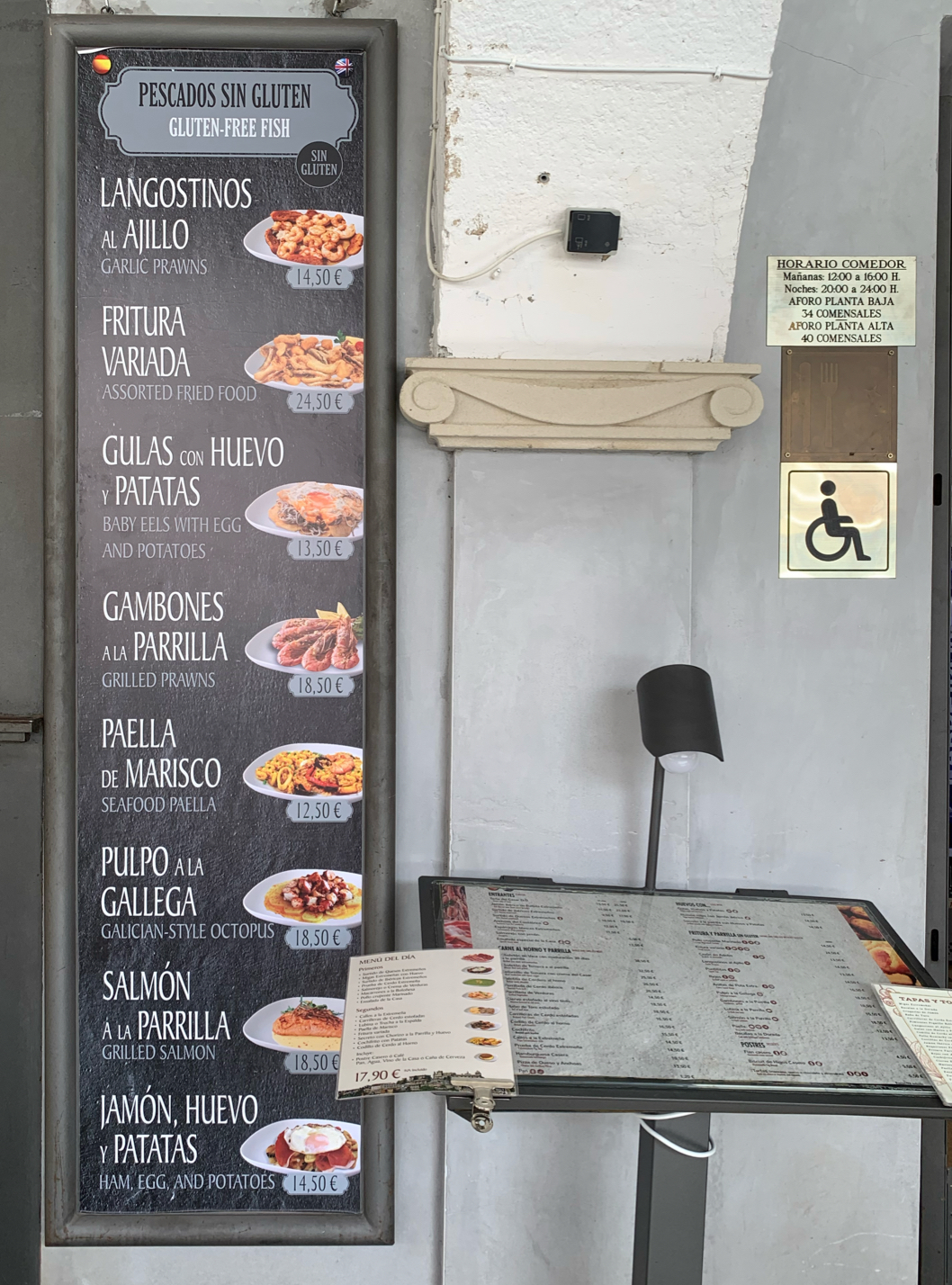
|
135929
|
Laura_Pizarro_Jacinto
|
Spain
Cáceres
|
|
|
—
|
PALRA
|
|
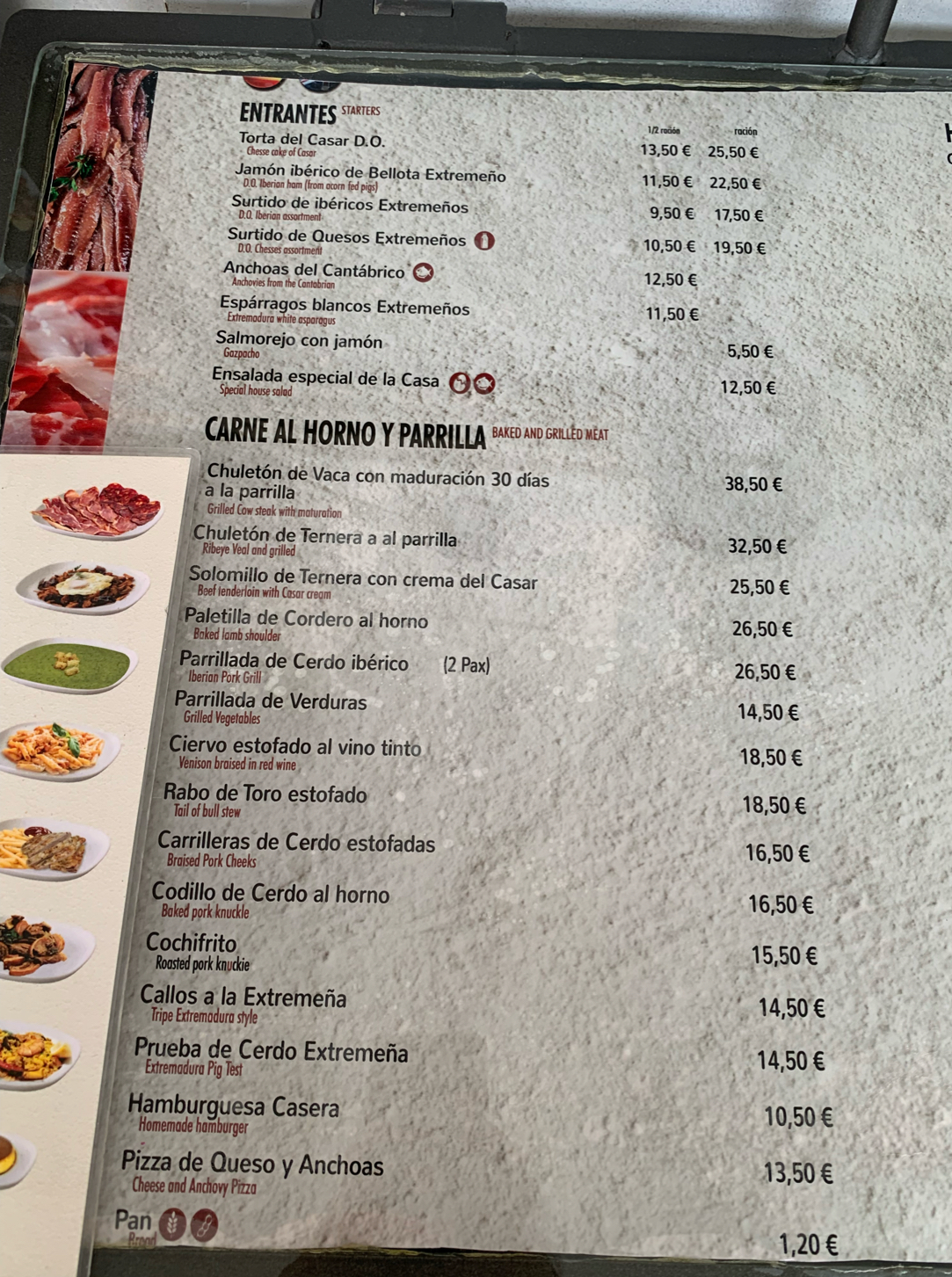
|
135930
|
Laura_Pizarro_Jacinto
|
Spain
Cáceres
|
|
|
—
|
PALRA
|
|
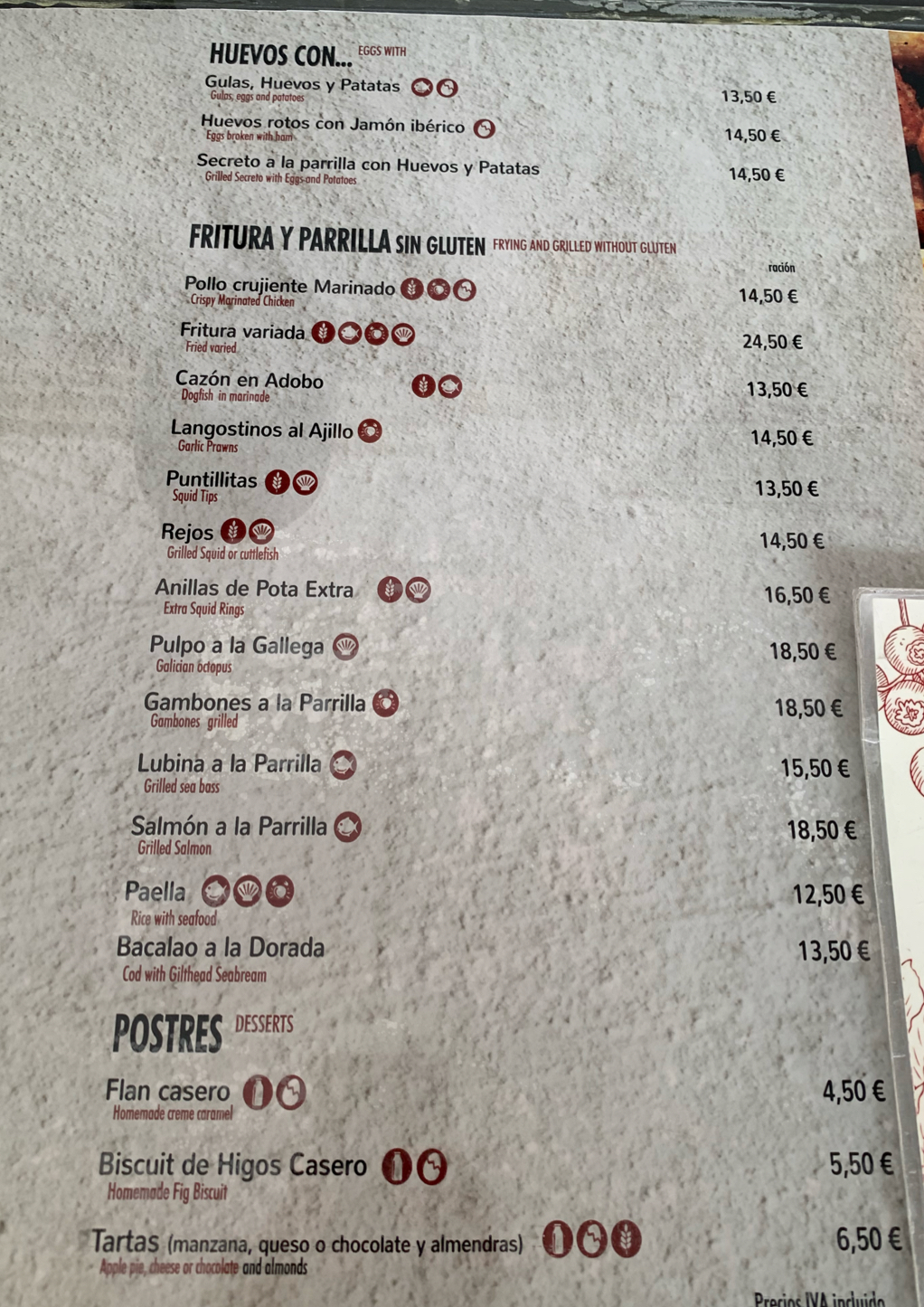
|
135931
|
Laura_Pizarro_Jacinto
|
Spain
Cáceres
|
|
|
—
|
PALRA
|
|
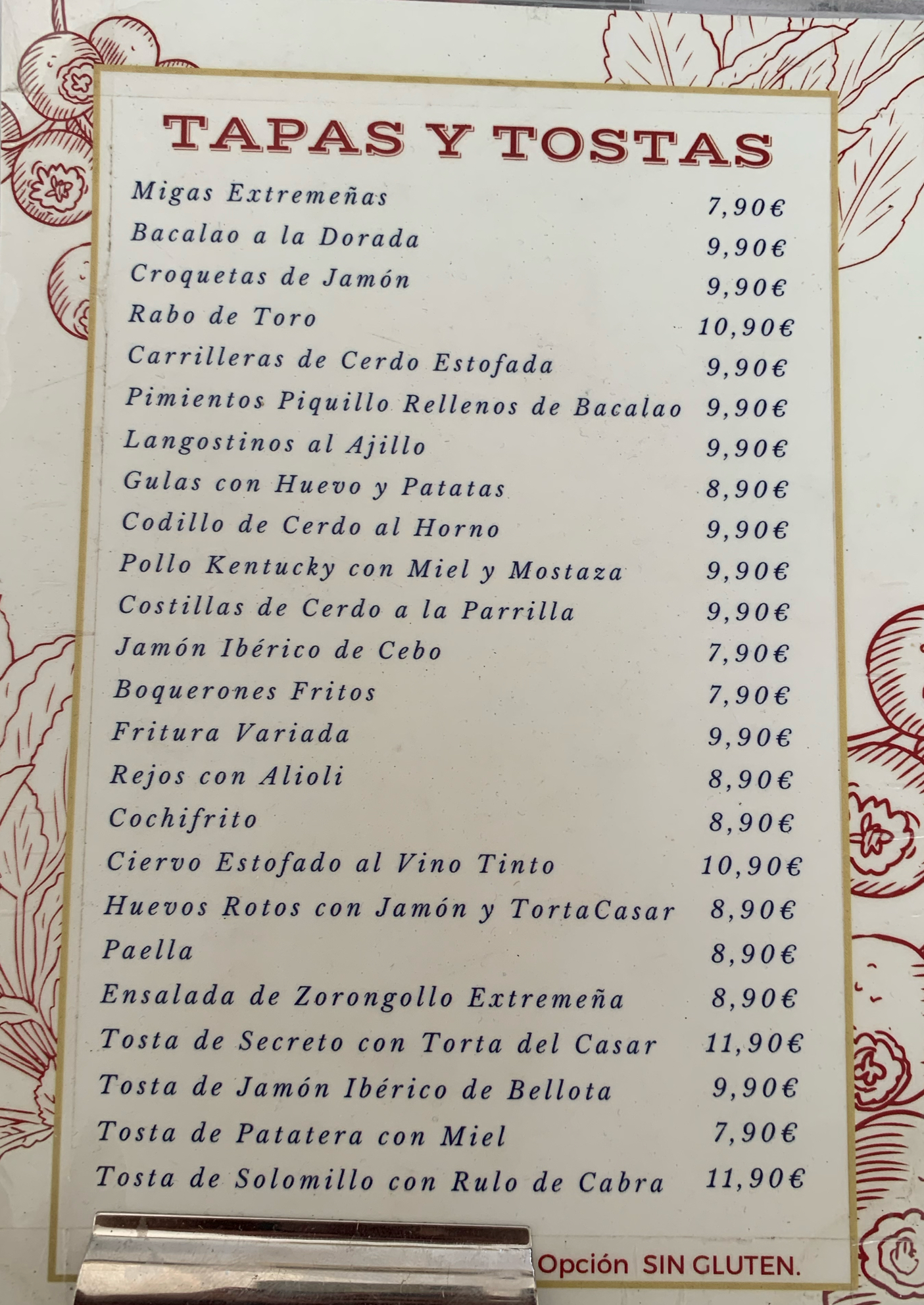
|
135932
|
Laura_Pizarro_Jacinto
|
Spain
Cáceres
|
|
|
—
|
PALRA
|
|
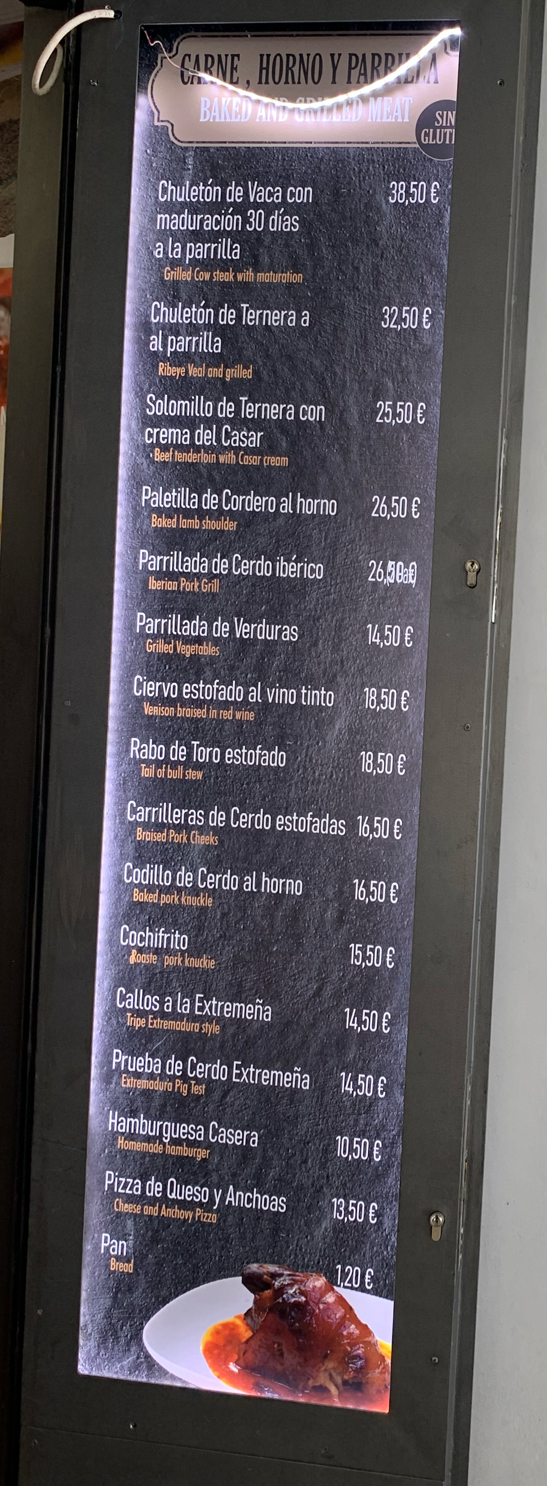
|
135933
|
Laura_Pizarro_Jacinto
|
Spain
Cáceres
|
|
|
—
|
PALRA
|
|